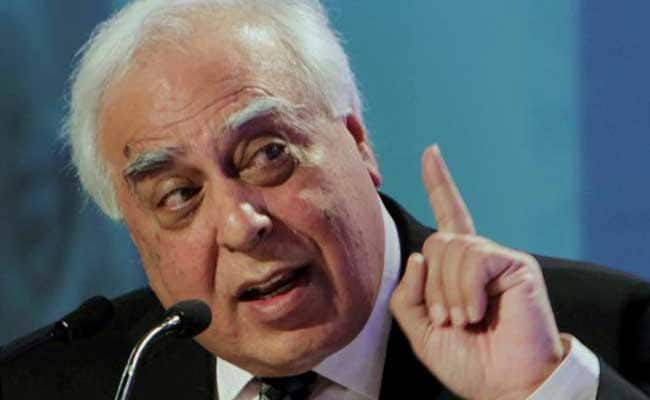Yesterday, Congress leader and former Union Minister, Kapil Sibal, stated that the Sedition Law is a ‘colonial hangover’. This statement of the former Union Minister’s came in the context of the latest chargesheet filed in court against former JNUSU president Kanhaiya Kumar and his acquaintances.
Calling for a change in the government, Kapil Sibal said, “Real sedition is when those in power manipulate institutions, misuse the law, breach peace and security by inciting violence. Punish them in 2019. ‘Sarkar Badlo Desh Bachao’ (change the government, save the country)”. Though the former Union Minister slagged off against the saffron party’s government, it has conveniently ignored the UPA era’s slapping of the sedition law on dissenters such as Aseem Trivedi and even the entire village of Kudankulam in Tamil Nadu.
8,000 sedition cases, 66,000 criminal cases were filed for Kudankulam protest during UPA. Nobody screamed Emergency https://t.co/oaiS2RdpcF
— Abhijit Majumder (@abhijitmajumder) February 28, 2016
In 2012, Aseem Trivedi, a political cartoonist and activist, known for his anti corruption campaign, ‘Cartoons’, against corruption, was booked on the charge of sedition by the then UPA government. The FIR had been lodged against Aseem Trivedi for violating the Prevention of Insult to National Honour Act, 1971 and Section 66(A) of Information Technology Act, for displaying a number of cartoons at a public meeting organized by “India Against Corruption”. Later the Bombay High Court released a judgment in his favour. In the judgment, the court said, “The cartoons displayed at a meeting held on 27 November 2011 in Mumbai, as a part of the movement launched by Anna Hazare against corruption in India, were full of anger and disgust against corruption prevailing in the political system and had no element of wit or humour or sarcasm”.
When UPA was in Power, Sedition cases were filed against 8,856 ‘ppl belonging to an an entire village in Tamil Nadu which was protesting against Kudankulam Nuclear Plant. Why did u do this and why didn't u scrap the law then?
Sedition is a serious offense and needs to be there https://t.co/yEhUqb5OpP
— Ashu (Modi Ka Parivar) (@muglikar_) January 16, 2019
The judgement further slapped the then UPA government by adding, “But for that reason, the freedom of speech and expression available to the third respondent to express his indignation against corruption in the political system in strong terms or visual representations could not have been encroached upon when there is no allegation of incitement to violence or the tendency or the intention to create public disorder”.
Also Read: Trouble ahead for Kanhaiya Kumar and Umar Khalid.
In another instance, almost the entire village of Kudankulam in Tamil Nadu was slapped with sedition cases. A total of 8,956 people were charged under the allegation of disrespecting the then Prime Minister, Manmohan Singh. These villagers were protesting against the Kudankulam Nuclear Power Plant (KNPP). Similarly, in 2012, a Puducherry based businessman, Ravi Srinivasan, was arrested following a complaint from the former finance minister P. Chidambaram’s son, Karti Chidambaram. The businessman was accused of making a derogatory remark using his twitter account. In his tweet on 20 October 2012, Srinivasan said, “Got reports that Karti Chidambaram has amassed more wealth than Robert Vadra”. Afterwards, Srinivasan was arrested and charges were framed against him under Section 66A. Later developments in the case confirmed that Karti wasin fact involved in corruption.
There are many such cases of the use of the sedition law under the Congress regime that the “eminent lawyer” should take a look at before making such statements. Not to forget that, by questioning the court’s order in Kanhaiya Kumar’s case, the Congress party is again taking the side of anti-national elements. It seems that this is the true nature of the Grand Old party.
